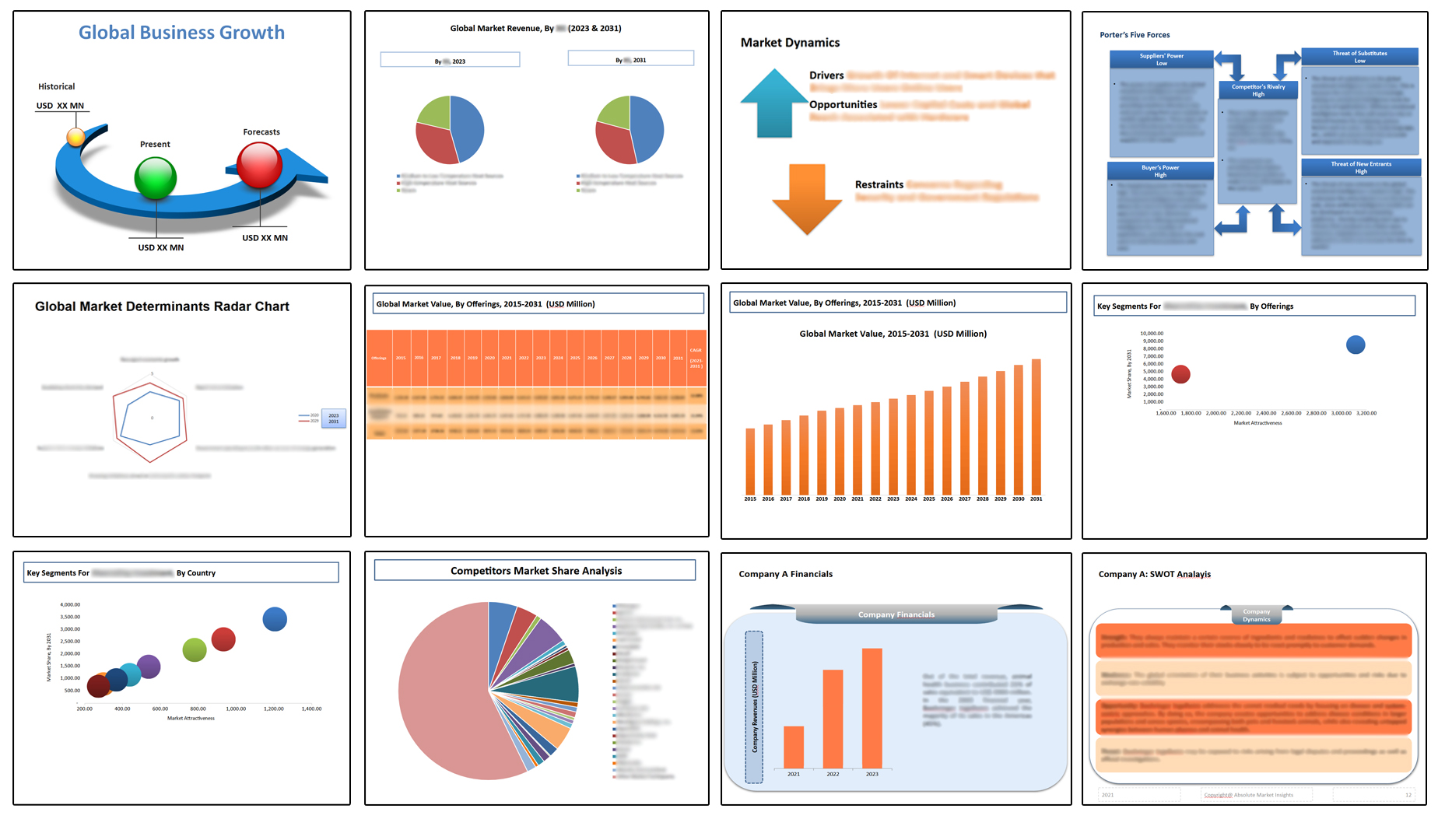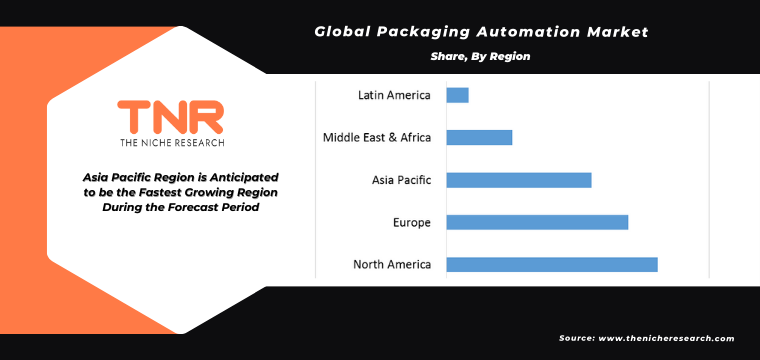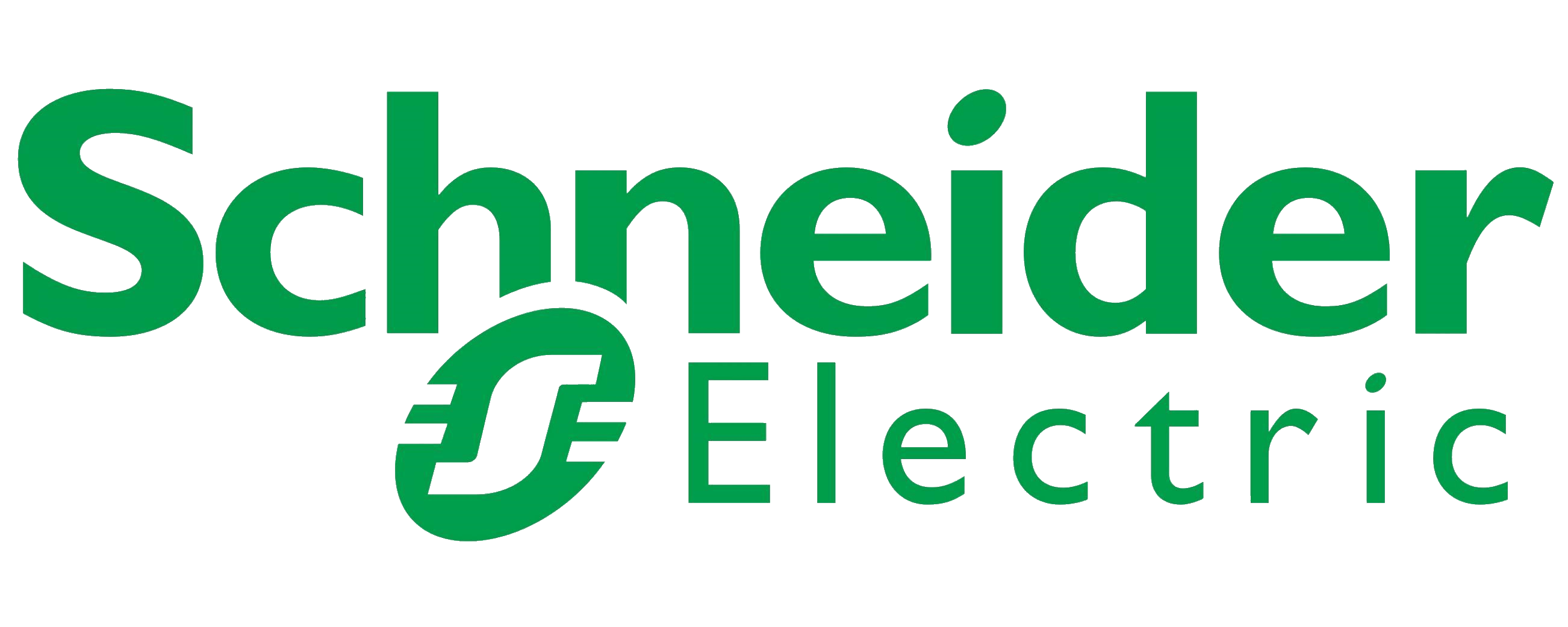Global Packaging Automation Market By Offering, By Packaging Type, By Category, By End User Industry, By Region & Segmental Forecast, 2023-2031, Comparative Analysis and Trends
- Industry: Construction & Manufacturing
- Report ID: TNR-110-981
- Number of Pages: 420
- Table/Charts : Yes
- November, 2023
- Base Year : 2024
- No. of Companies : 10+
- No. of Countries : 29
- Views : 10295
- Covid Impact Covered: Yes
- War Impact Covered: Yes
- Formats : PDF, Excel, PPT
In Terms of Revenue, Global Packaging Automation Market Accounted For US$ 69.34 Bn in 2022; Projected to Gain CAGR of 8.05% During 2023 – 2031
In an era marked by technological advancements and the pursuit of efficiency, the packaging automation sector is emerging as a transformative force across various industries. The convergence of cutting-edge technologies, including robotics, artificial intelligence (AI), and data analytics, is revolutionizing traditional packaging processes, leading to enhanced productivity, reduced costs, and improved product quality. Packaging has transcended its conventional role as a protective covering for products. Today, it is an integral part of brand identity, consumer experience, and supply chain optimization. The demand for faster production, consistent quality, and sustainability has compelled industries to explore automation as a solution.
Industries are increasingly recognizing the benefits of packaging automation, which include accelerated packaging times, reduced material wastage, and enhanced quality control. The ability to automate repetitive tasks not only improves overall efficiency but also allows human resources to be diverted towards more complex and value-added activities, which in turn is propelling the demand for packaging automation market.
Global Packaging Automation Market Revenue & Forecast, (US$ Million), 2015 – 2031

Navigating Unprecedented Times: COVID-19’s Impact on the Packaging Automation Market
The initial onset of the pandemic led to disruptions in supply chains, workforce availability, and consumer behavior. These challenges compelled industries to reevaluate their operational strategies, with packaging automation emerging as a vital tool to address the evolving landscape. The pandemic accelerated the already growing shift towards e-commerce, as consumers turned to online shopping for convenience and safety.
This shift brought packaging to the forefront as a key factor influencing customer satisfaction. Packaging automation played a crucial role in ensuring timely order fulfilment, personalized packaging, and efficient delivery, meeting the surge in demand. Industries faced labour shortages due to lockdowns and health concerns, prompting a greater reliance on automation to maintain production levels. Packaging automation systems allowed companies to continue operations with reduced human intervention, ensuring business continuity even in challenging circumstances. With hygiene becoming a top priority, industries sought solutions that minimized human touch points. Automation enabled touch less packaging processes, reducing the risk of contamination and ensuring the safety of both workers and consumers. These factors drove the demand of the global packaging automation market.
Report Coverage and Deliverables

Global Packaging Automation Market Driving Factors:
- Operational Efficiency: Packaging automation offers streamlined processes, reducing manual intervention, and eliminating errors. This results in enhanced operational efficiency, increased output, and decreased production cycle times.
- Labour Shortages: Industries are facing a scarcity of skilled labour, especially for repetitive and physically demanding tasks. Automation mitigates this issue by reducing reliance on human labour and reallocating human resources to more strategic roles.
- Product Consistency: Automated packaging processes ensure consistent product quality and presentation. This is particularly crucial for industries where brand image and customer perception are paramount, boosting the global packaging automation market.
- Cost Savings: While initial investment can be high, automation leads to substantial long-term cost savings through reduced labour costs, minimized material wastage, and optimized energy consumption.
- Consumer Demand: Rapid e-commerce growth has amplified consumer demand for fast and accurate order fulfilment. Packaging automation market enables timely delivery, enhancing customer satisfaction and loyalty.
- Regulatory Compliance: Industries such as pharmaceuticals and food processing require strict adherence to regulations. Packaging automation ensures compliance by providing traceability and tamper-proof packaging.
Retail and E-commerce Segment Poised to Dominate the Packaging Automation Market: Pioneering the Next Phase of Evolution
The packaging automation market is undergoing a seismic transformation, and the retail and e-commerce segment stands at the forefront of this revolution. As the world witnesses an unprecedented surge in online shopping, the e-commerce sector is expected to emerge as a dominant force driving the packaging automation market forward, reshaping industries, and redefining consumer experiences. E-commerce sector thrives on rapid order fulfillment and timely deliveries. Packaging automation ensures that products are swiftly processed, packed, and dispatched, meeting the high expectations of online shoppers.
These platforms cater to a diverse range of products and consumer preferences. Packaging automation facilitates tailored packaging solutions, allowing for personalized touches and enhancing the unboxing experience. As e-commerce evolves, last-mile delivery becomes a critical focus. Automation solutions that optimize packaging for transit, enable tracking, and ensure secure deliveries will be in high demand. The integration of automation in warehousing and distribution centers will streamline order processing, allowing for efficient storage, retrieval, and packaging of products.
North America’s Significant Role: Dominating the Packaging Automation Market

The region boasts a rich history of technological innovation and research. This culture of innovation fuels the development of cutting-edge packaging automation solutions that push the boundaries of efficiency and performance. North America is home to a skilled workforce capable of operating and maintaining sophisticated automation systems. This availability of talent ensures the seamless integration of automation technologies into various industries. The United States, being a key player in North America, accounted for ~ 81.6% of the region’s market share in the packaging automation market.
The presence of leading automation providers, coupled with robust demand from various industries, contributes to its prominence. Companies like Amazon, which operates extensive distribution centers, rely heavily on automated packaging systems to meet the rapid surge in online orders. The region’s food and beverage companies embrace automation to enhance packaging accuracy, ensure food safety, and meet consumer demands for traceability. Automated solutions enable the packaging of different products and sizes efficiently. Furthermore, emphasis on research and development will lead to the creation of cutting-edge automation technologies, such as AI-driven systems, collaborative robotics, and predictive maintenance solutions.
Competitive Landscape
Some of the key companies operating in the global packaging automation market are:
- ABCO Automation, Inc.
- CMC Packaging Automation
- CONVEYCO
- Crawford Packaging
- Crown Packaging Corp
- CXV Global Ltd
- Falcon Autotech
- Famic Technologies Inc.
- PackEdge Co
- Packsize International, Inc.
- Rockwell Automation
- Sealed Air
- Sewtec Automation Ltd
- Stora Enso
- TPC Packaging Solutions
- WestRock Company
- Other Market Participants
Global Packaging Automation Market Report Coverage
| Report Specifications | Details |
| Market Revenue in 2022 | US$ 69.34 Billion |
| Market Size Forecast by 2031 | US$ 147.2 Billion |
| Growth Rate (CAGR) | 8.05% |
| Historic Data | 2015 – 2021 |
| Base Year for Estimation | 2022 |
| Forecast Period | 2023 – 2031 |
| Report Inclusions | Market Size & Estimates, Market Dynamics, Competitive Scenario, Trends, Growth Factors, Market Determinants, Key Investment Segmentation, Product/Service/Solutions Benchmarking |
| Segments Covered | By Offering, By Packaging Type, By Category, By End User Industry |
| Regions Covered | North America, Europe, Asia Pacific, Middle East & Africa, Latin America |
| Countries Covered | U.S., Canada, Mexico, Rest of North America, France, The UK, Spain, Germany, Italy, Nordic Countries (Denmark, Finland, Iceland, Sweden, Norway), Benelux Union (Belgium, The Netherlands, Luxembourg), Rest of Europe, China, Japan, India, New Zealand, Australia, South Korea, Southeast Asia (Indonesia, Thailand, Malaysia, Singapore, Rest of Southeast Asia), Rest of Asia Pacific, Saudi Arabia, UAE, Egypt, Kuwait, South Africa, Rest of Middle East & Africa, Brazil, Argentina, Rest of Latin America |
| Key Players | ABCO Automation, Inc.,CMC Packaging Automation, CONVEYCO, Crawford Packaging, Crown Packaging Corp, CXV Global Ltd, Falcon Autotech, Famic Technologies Inc., PackEdge Co, Packsize International, Inc., Rockwell Automation, Sealed Air, Sewtec Automation Ltd, Stora Enso, TPC Packaging Solutions, WestRock Company, Other Industry Participants |
| Customization Scope | Customization allows for the inclusion/modification of content pertaining to geographical regions, countries, and specific market segments. |
| Pricing & Procurement Options | Explore purchase options tailored to your specific research requirements |
| Contact Details | Consult With Our Expert
Japan (Toll-Free): – +81 663-386-8111 South Korea (Toll-Free): – +82-808- 703-126 Saudi Arabia (Toll-Free): – +966 800 850 1643 United States: +1 302-232-5106 United Kingdom: +447537105080 E-mail: askanexpert@thenicheresearch.com
|
Global Packaging Automation Market
By Offering
- Equipment
-
- Automatic
- Semi-automatic
- Solutions
- Services
By Packaging Type
- Primary
- Secondary
- Transit
By Category
- Stretch Wrapper Equipment
- Shrink Wrapper Equipment
- Flow Wrapper Equipment
- Tray Sealing Equipment
- Sleeving and Cartoning
- Automated Mailer Systems
- Case Sealers and Erectors
- Void Fill Equipment
- Strapping Equipment
- Palletizing Equipment
- Others
By End User Industry
- Retail and E-commerce
- Food and Beverage
- Healthcare
- Beauty and Cosmetics
- Fashion and Apparels
- Chemical
- Electronics
- Logistics and Warehousing
- Automotive
- Toys and Games
- Others
By Region
- North America (U.S., Canada, Mexico, Rest of North America)
- Europe (France, The UK, Spain, Germany, Italy, Nordic Countries (Denmark, Finland, Iceland, Sweden, Norway), Benelux Union (Belgium, The Netherlands, Luxembourg), Rest of Europe)
- Asia Pacific (China, Japan, India, New Zealand, Australia, South Korea, Southeast Asia (Indonesia, Thailand, Malaysia, Singapore, Rest of Southeast Asia), Rest of Asia Pacific)
- Middle East & Africa (Saudi Arabia, UAE, Egypt, Kuwait, South Africa, Rest of Middle East & Africa)
- Latin America (Brazil, Argentina, Rest of Latin America)
Table of Contents
Note: This ToC is tentative and can be changed according to the research study conducted during the course of report completion.
**Exclusive for Multi-User and Enterprise User.
Global Packaging Automation Market Segmentation
By Offering
By Packaging Type
By Category
By End User Industry
By Region
**Note: The report covers cross-segmentation analysis by region further into countries
The Niche Research approach encompasses both primary and secondary research methods to provide comprehensive insights. While primary research is the cornerstone of our studies, we also incorporate secondary research sources such as company annual reports, premium industry databases, press releases, industry journals, and white papers.
Within our primary research, we actively engage with various industry stakeholders, conducting paid interviews and surveys. Our meticulous analysis extends to every market participant in major countries, allowing us to thoroughly examine their portfolios, calculate market shares, and segment revenues.
Our data collection primarily focuses on individual countries within our research scope, enabling us to estimate regional market sizes. Typically, we employ a bottom-up approach, meticulously tracking trends in different countries. We analyze growth drivers, constraints, technological innovations, and opportunities for each country, ultimately arriving at regional figures.Our process begins by examining the growth prospects of each country. Building upon these insights, we project growth and trends for the entire region. Finally, we utilize our proprietary model to refine estimations and forecasts.
Our data validation standards are integral to ensuring the reliability and accuracy of our research findings. Here’s a breakdown of our data validation processes and the stakeholders we engage with during our primary research:
- Supply Side Analysis: We initiate a supply side analysis by directly contacting market participants, through telephonic interviews and questionnaires containing both open-ended and close-ended questions. We gather information on their portfolios, segment revenues, developments, and growth strategies.
- Demand Side Analysis: To gain insights into adoption trends and consumer preferences, we reach out to target customers and users (non-vendors). This information forms a vital part of the qualitative analysis section of our reports, covering market dynamics, adoption trends, consumer behavior, spending patterns, and other related aspects.
- Consultant Insights: We tap into the expertise of our partner consultants from around the world to obtain their unique viewpoints and perspectives. Their insights contribute to a well-rounded understanding of the markets under investigation.
- In-House Validation: To ensure data accuracy and reliability, we conduct cross-validation of data points and information through our in-house team of consultants and utilize advanced data modeling tools for thorough verification.
The forecasts we provide are based on a comprehensive assessment of various factors, including:
- Market Trends and Past Performance (Last Five Years): We accurately analyze market trends and performance data from preceding five years to identify historical patterns and understand the market’s evolution.
- Historical Performance and Growth of Market Participants: We assess the historical performance and growth trajectories of key market participants. This analysis provides insights into the competitive landscape and individual company strategies.
- Market Determinants Impact Analysis (Next Eight Years): We conduct a rigorous analysis of the factors that are projected to influence the market over the next eight years. This includes assessing both internal and external determinants that can shape market dynamics.
- Drivers and Challenges for the Forecast Period:Identify the factors expected to drive market growth during the forecast period, as well as the challenges that the industry may face. This analysis aids in deriving an accurate growth rate projection.
- New Acquisitions, Collaborations, or Partnerships: We keep a close watch on any new acquisitions, collaborations, or partnerships within the industry. These developments can have a significant impact on market dynamics and competitiveness.
- Macro and Micro Factors Analysis:A thorough examination of both macro-level factors (e.g., economic trends, regulatory changes) and micro-level factors (e.g., technological advancements, consumer preferences) that may influence the market during the forecast period.
- End-User Sentiment Analysis: To understand the market from the end-user perspective, we conduct sentiment analysis. This involves assessing the sentiment, preferences, and feedback of the end-users, which can provide valuable insights into market trends.
- Perspective of Primary Participants: Insights gathered directly from primary research participants play a crucial role in shaping our forecasts. Their perspectives and experiences provide valuable qualitative data.
- Year-on-Year Growth Trend: We utilize a year-on-year growth trend based on historical market growth and expected future trends. This helps in formulating our growth projections, aligning them with the market’s historical performance.
Research process adopted by TNR involves multiple stages, including data collection, validation, quality checks, and presentation. It’s crucial that the data and information we provide add value to your existing market understanding and expertise. We have also established partnerships with business consulting, research, and survey organizations across regions and globally to collaborate on regional analysis and data validation, ensuring the highest level of accuracy and reliability in our reports.















